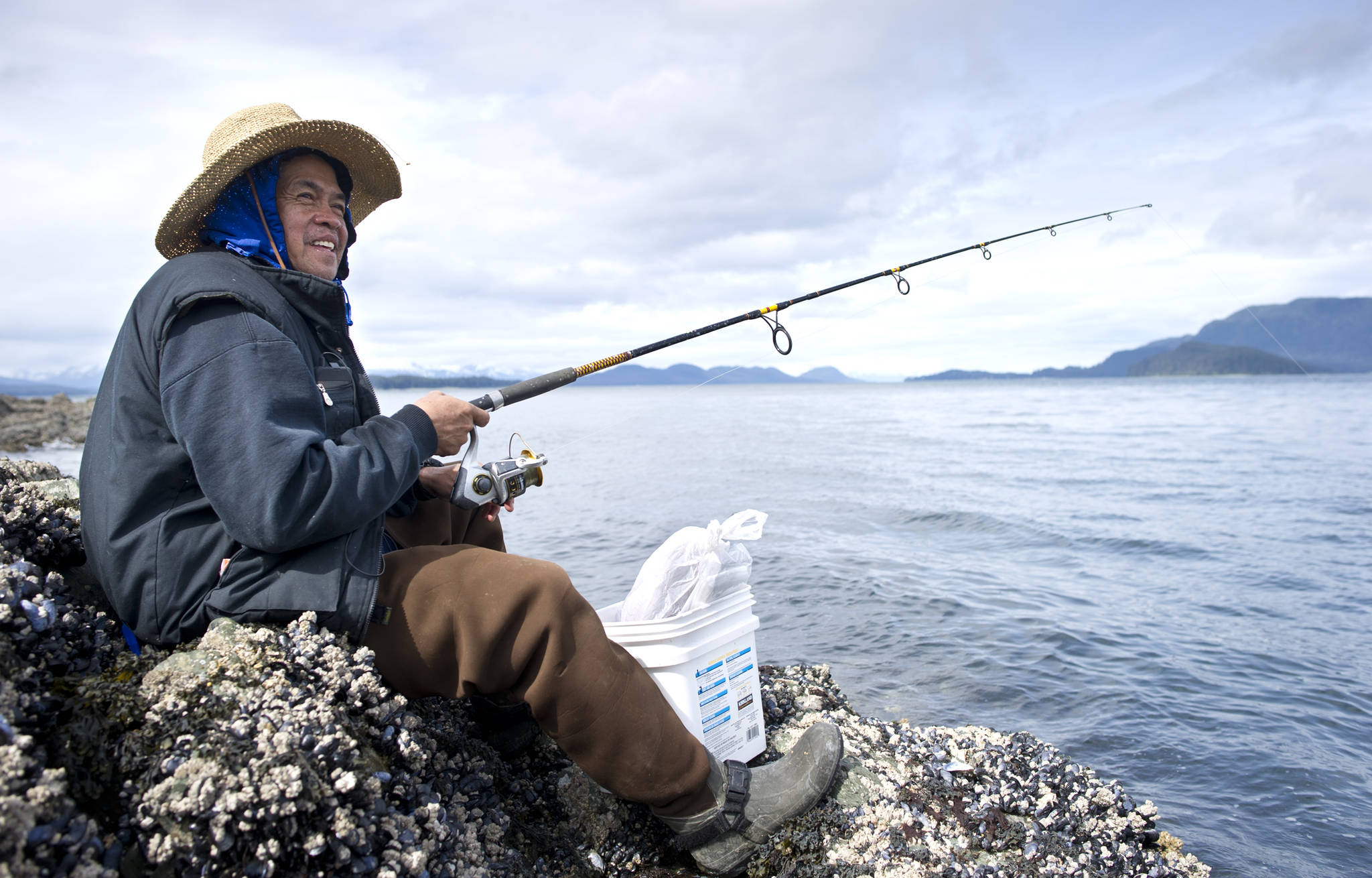Local sport fishers won’t be able to get their early-season king salmon fix as the Juneau area will be closed for king salmon fishing from April 15 to June 14, according to a Monday emergency order from the Alaska Department of Fish and Game.
The two-month closure comes as management biologists expect a second-straight year of record-low king salmon returns on the Taku River.
“We’ve been in a period of low productivity, not just on the Taku, but on several rivers up and down the coast,” Juneau Area Management Biologist Daniel Teske said. “Forecasts for this coming season are expected to be well below our escapement goals, so we need to limit harvest as much as possible.”
Fish and Game’s escapement goals set a guideline for the number of spawning king salmon needed to keep population numbers healthy. Currently, the lower boundary for escapement is 19,000 fish while the upper goal is 36,000.
Fish and Game forecasts 13,300 spawning king salmon this year. If that forecast bears out, it will mark just the seventh year king salmon numbers haven’t met escapement goals on the Taku since 1975.
From 1989 to 2013, an average of 42,000 king salmon a year have made it past fishermen to freshwater spawning grounds on the Taku River. A record high of 114,938 fish made it upriver in 1997, while 2016 saw a record low of 12,381.
Teske, who’s been with Fish and Game for eight years, said this year’s numbers aren’t necessarily alarming as populations “tend to go up and down.” Strong returns in 2015 (28,800) and 2014 (23,532) bear this out.
But Fish and Game hasn’t historically gone as far as closing the sport fishery entirely. Typically, management biologists will impose limits on the number of fish people can catch while leaving the grounds themselves open, though Teske did recall that the department imposed some kind of sport closure in the early ’80s.
Nobody knows exactly why Southeast king salmon are struggling, but biologists do know where the fish are being affected: in the ocean. Low numbers on the Taku correlate to reduced returns on other Southeast rivers like the Chilkat, Stikine and Unuk, meaning fish from these rivers are probably all affected in similar ways.
The increased die-off must be happening in a marine environment, Teske said, otherwise numbers on the four rivers wouldn’t fall at the same time.
“We look at the model and it’s primarily showing something happening in the ocean environment,” Teske said. “We can’t say exactly what it is but there’s potentially less prey available for these fish and potentially an increase in predators. It’s tough to pinpoint because there’re many factors involved when you look at the marine environment.”
As a result of the order, the Central Council of Tlingit and Haida Indian Tribes of Alaska is canceling its Spring King Salmon Derby, derby organizers confirmed Monday. The derby typically takes place during the entire month of May.
“The cancellation of the derby is unfortunate, but we fully support the Alaska Department of Fish and Game’s decision to close the Juneau king salmon sport fisheries,” said President Richard Peterson in a press release. “As stewards of the land and sea, it’s vital we protect our traditional and customary resources to ensure sustainability so future Taku River king salmon runs return stronger.”
The derby, off for the first time in 20 years, has helped the Central Council raise $475,000 in scholarships for over 1,500 secondary education students.
The emergency order extends north from a line in Stephens Passage between Point Hugh and Point League to a northern border above Berners Bay in Lynn Canal, marked by a line extending west from the latitude of Sherman Rock. Fishing grounds are open in Chatham Strait below the latitude of Point Couverden.

